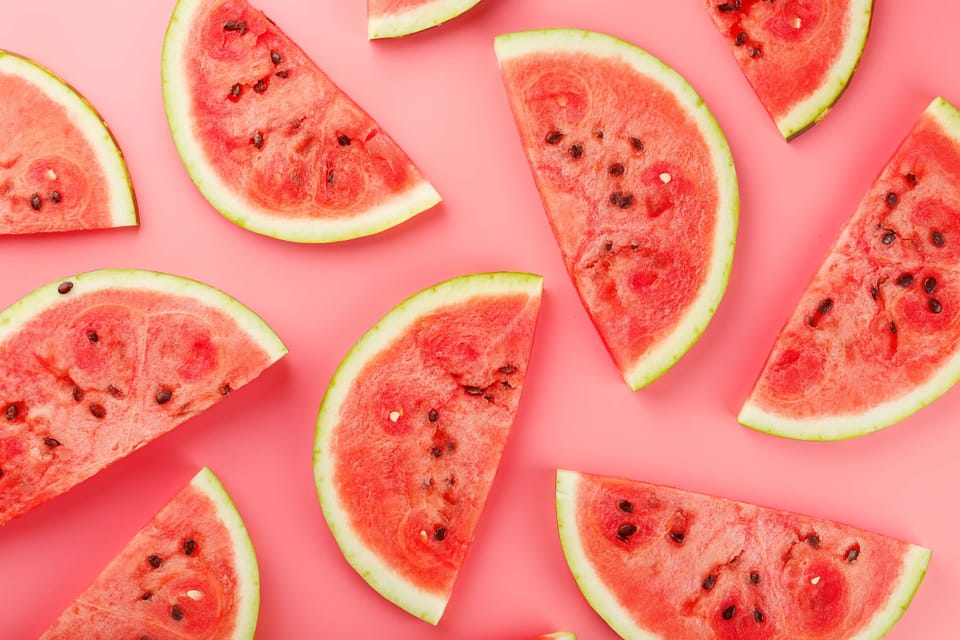Key takeaways
- This post explains sunburn and how nutrition is presented as supportive during skin recovery.
- It lists 9 foods the article recommends for sunburn healing (like watermelon, cucumber, berries, and fatty fish).
- It also includes a section on foods to avoid while recovering from sunburn.
- The post emphasizes hydration and nutrient-dense meals as part of a recovery routine.
What starts as a perfect afternoon outdoors can quickly turn into red, stinging skin. As enjoyable as sunny weather may be, it comes with a hidden cost of increased exposure to ultraviolet (UV) rays, which can cause serious damage and discomfort to unprotected skin.
When damaged by the sun, the skin experiences stress that increases the risk of free radical formation and nutrient depletion, leading to redness and blistering. While aloe vera gel and cold compress can provide external relief, what you eat can support how effectively and quickly the skin heals. This is because the skin requires the right nutrients to cool the heat, replenish lost moisture, and repair cell damage.
In this guide, we will explore how nutrition can reduce sunburn, what you can eat to promote skin healing, and the foods that can worsen symptoms. Read along!
How does nutrition support sunburn healing?
When it comes to sunburn recovery, most people immediately turn to a cold compress to ease the redness and sting, but that will only provide temporary relief as the skin needs to heal from the inside. Sunburn is more than a cosmetic issue - it is inflammation.
Ultraviolet rays damage the DNA that protects the skin cells, causing redness, pain, swelling, and in certain cases, peeling. This damage increases the pressure on the immune system, causing it to work tirelessly to remove injured cells and begin the healing process.
This is where nutrition comes in, as certain nutrients can boost immune function and help the skin recover faster from the damage. The right foods can provide antioxidants that help combat inflammation and decrease oxidative stress. Hydrating foods can help to replenish moisture lost from sun exposure. Moreover, key minerals and vitamins can support the regeneration of damaged cells and ultimately boost skin health.
Top 9 foods for faster healing from sunburn

1. Watermelon
Packed with water, watermelon is more than just a summer delight; it contains powerful antioxidants and amino acids that support skin repair. Watermelon’s high water content aids rehydration of sun-damaged skin and can help decrease peeling. Hydration is crucial for maintaining skin elasticity and skin tissue repair.
In addition, watermelon contains citrulline, an amino acid that promotes blood circulation, allowing oxygen and nutrients to reach skin tissues efficiently. Watermelon also contains great amounts of vitamin C, an antioxidant that can help alleviate inflammation and boost immune response to heal sunburn.
2. Blueberries
Blueberries are one of the top foods for healing sunburned skin. They are packed with anthocyanins, which are potent antioxidants that support the neutralization of free radicals caused by UV damage, helping to decrease inflammation and boost skin repair.
They also contain vitamin K, which enhances skin healing and elasticity. Vitamin K is particularly beneficial, especially when sunburn leads to skin wounds or peeling. It can help ease inflammation and reduce post-burn spots, especially in people with sensitive skin. Blueberries also contain manganese that supports collagen production, helping the skin rebuild its structure.
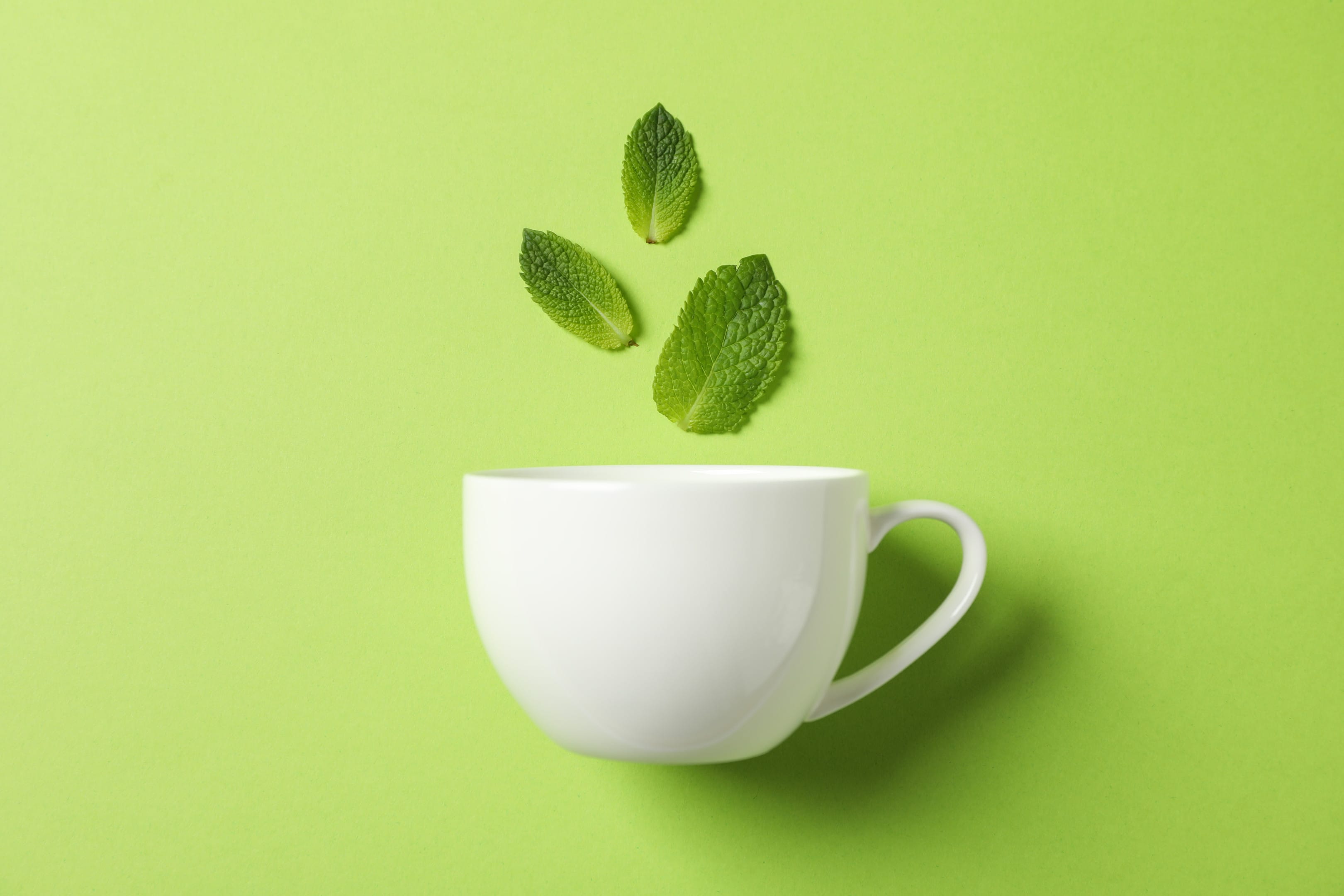
3. Green tea
Green tea is a potent beverage to consume for sunburn healing. It contains bioactive compounds such as epigallocatechin gallate (EGCG) that can shield skin cells from UV damage, ease irritation, and prevent further damage by obstructing the inflammatory response triggered by sunburn.
Green tea is also loaded with flavonoids that aid in the reduction of skin redness, boost hydration, and protect the skin from oxidative stress caused by sun exposure. Flavonoids also help to enhance blood circulation, supporting skin healing from the inside. In addition, green tea contains vitamin B2 that can support skin cell turnover, helping the body to get rid of damaged skin cells and regenerate new and healthy ones.
4. Cucumber
Its dense water composition is one reason why cucumbers are great for sunburn alleviation. Cucumbers are made up of over 96% water, making them one of the most hydrating foods. They promote overall skin hydration, helping to replenish fluids lost due to sun exposure, and their high water content also helps to flush out inflammatory toxins that may hinder the skin-healing process.
Moreover, cucumbers are high in flavonoids and caffeic acids, which are beneficial for skin healing and recovery. Caffeic acid possesses anti-inflammatory compounds that can help decrease swelling, irritation, and redness. Flavonoids, on the other hand, can help calm skin and support skin tissue regeneration.
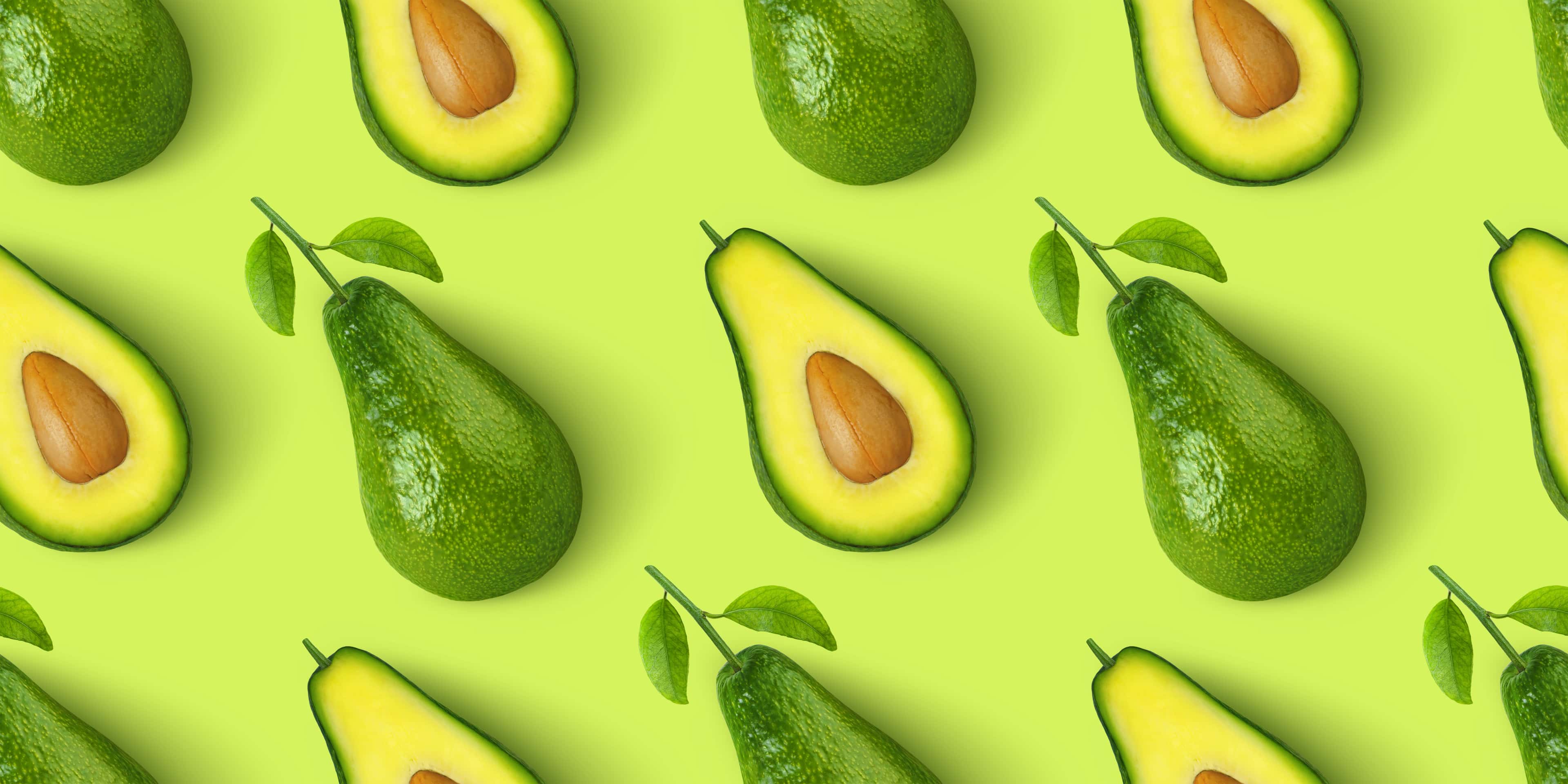
5. Avocados
Avocados are loaded with monounsaturated fats, especially oleic acid, that can help keep cell membranes flexible and strong. These healthy fats aid in reducing dryness, supporting skin barrier repair, and locking in moisture. Avocados are also high in vitamin E, a fat-soluble antioxidant that can help eliminate free radicals, decrease inflammation, and boost skin cell restoration.
Avocados also contain zeaxanthin and lutein, two powerful carotenoids that can protect the skin from further UV damage. Additionally, avocados are rich in magnesium and potassium, which can help restore fluid balance, decrease cramping, and boost skin hydration.
6. Tomatoes
Consuming tomatoes can help reverse UV damage as they are one of the richest sources of lycopene, which builds up in the skin over time and acts as a natural sunscreen. While they are not a replacement for topical sunscreens, lycopene can significantly help to decrease the severity of sunburn and reduce inflammation.
Furthermore, tomatoes contain potassium, a nutrient that is vital for skin balance and rehydration. The body loses electrolytes after sunburn, making the skin feel dry and tight. Potassium in tomatoes can help restore fluid balance, prevent flaking, and enhance skin moisture.
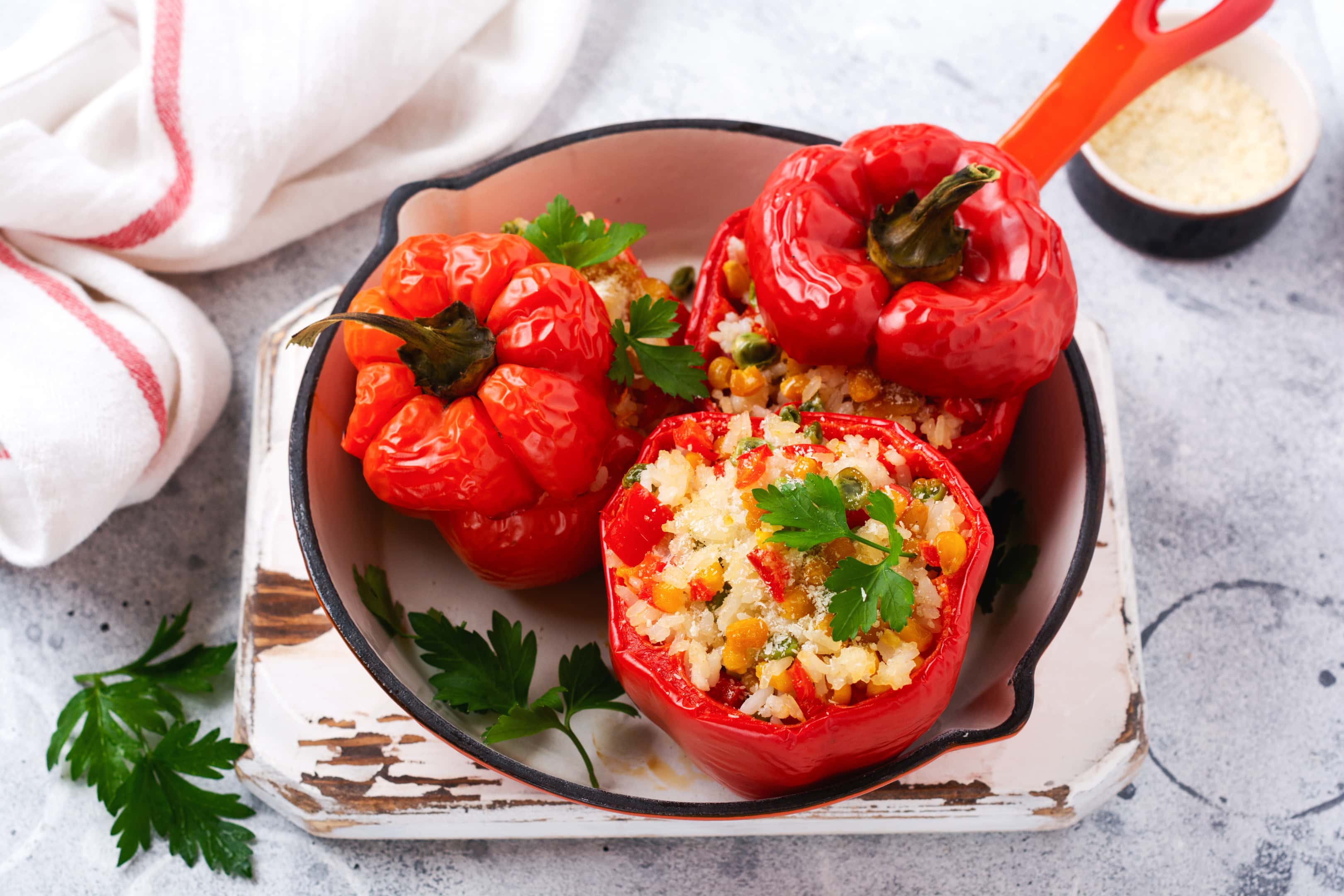
7. Bell peppers
Bell peppers are loaded with skin-repairing nutrients and are one of the richest sources of vitamin C, which is vital for collagen synthesis that supports the repair of damaged skin tissues. Sunburn weakens the skin barrier and breaks down collagen; vitamin C helps to rebuild it, supporting faster healing and boosting elasticity.
Moreover, red and orange bell peppers are rich in beta-carotene, which the body converts into vitamin A. This vitamin promotes skin cell regeneration and boosts the skin’s defense against UV damage. It also helps to alleviate inflammation and speed up the recovery process of sunburned areas.
8. Mackerel
Mackerel’s rich omega-3 fatty acid composition is one major reason why it is beneficial for sunburn relief and healing. Mackerel is high in EPA (eicosapentaenoic acid) and DHA (docosahexaenoic acid), healthy fats that aid in the reduction of systemic inflammation caused by UV damage. These fats also support skin barrier repair and can help decrease skin redness.
Sunburn affects the function of the skin, but the vitamin D in fatty fish such as mackerel can enhance skin cell growth and repair. Vitamin D also supports immune system function, improving the body’s response to tissue damage. Mackerel is also rich in selenium, a nutrient that can help protect cells from further damage.
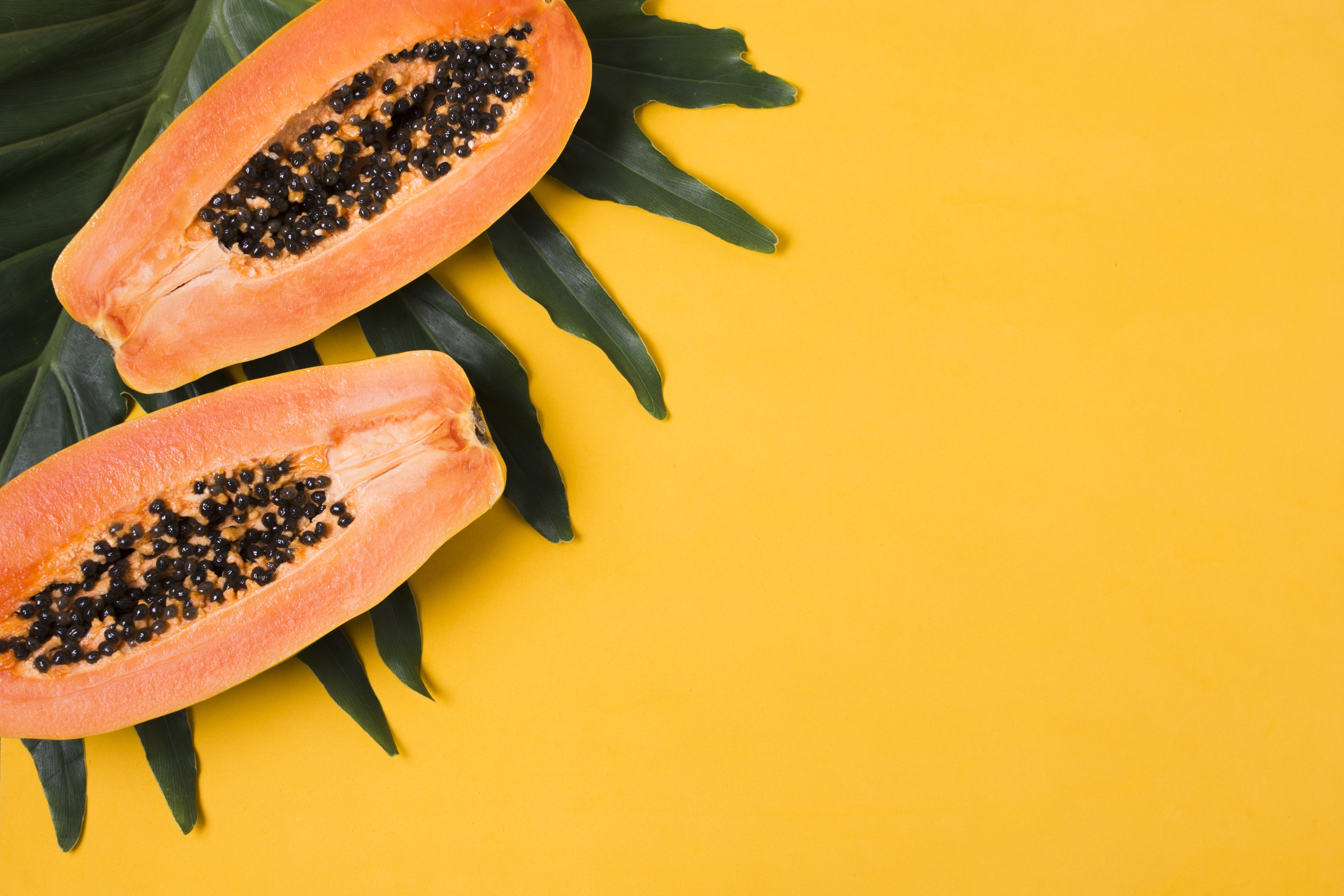
9. Papaya
Papaya is high in papain, a natural enzyme that supports digestion and boosts skin turnover. Papain supports skin healing from the inside by helping the body process the nutrients it needs for fast recovery and healing. Papaya is also high in vitamin C, making it effective for skin regeneration and boosting wound healing.
In addition, papaya is high in folate, which supports cell division and growth of new cells, especially when the skin is recovering from damage. It also helps to repair DNA damage caused by excessive exposure to the sun. In addition, papaya contains quercetin, which possesses anti-inflammatory qualities that can help ease skin discomfort, redness, and swelling.
Foods to avoid for sunburn healing
When the skin is damaged because of prolonged exposure to the sun, eating the wrong foods can further stress the body’s defense system, making recovery slower and more painful. One of the main culprits is foods high in sugar. These foods can spike blood sugar levels, which in turn can increase the risk of inflammation, delaying the repair of damaged skin, and worsening the swelling and redness.
As the skin needs hydration during the repair process, alcoholic beverages should be avoided as they can dehydrate skin and reduce the levels of important nutrients, such as vitamin A and C. Other foods to avoid include salty and processed meats, fried and greasy foods, and highly refined carbohydrates, as they can increase inflammation and interfere with skin regeneration.
Conclusion
Sunburn is more than a surface-level skin condition; this is why it is important to consume foods that can provide the body with the necessary nutrients that it needs to heal and recover. A nutrient-dense diet loaded with foods like blueberries, avocados, watermelon, cucumbers, tomatoes, and bell peppers can help combat inflammation, support the body’s natural repair process, and decrease the long-term effects of UV damage.

